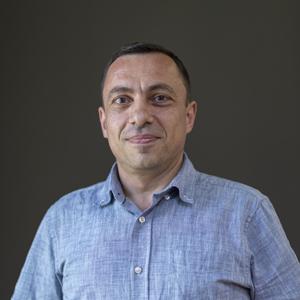Young people improve their parenting skills as part of the regional “EU 4 Gender Equality” project
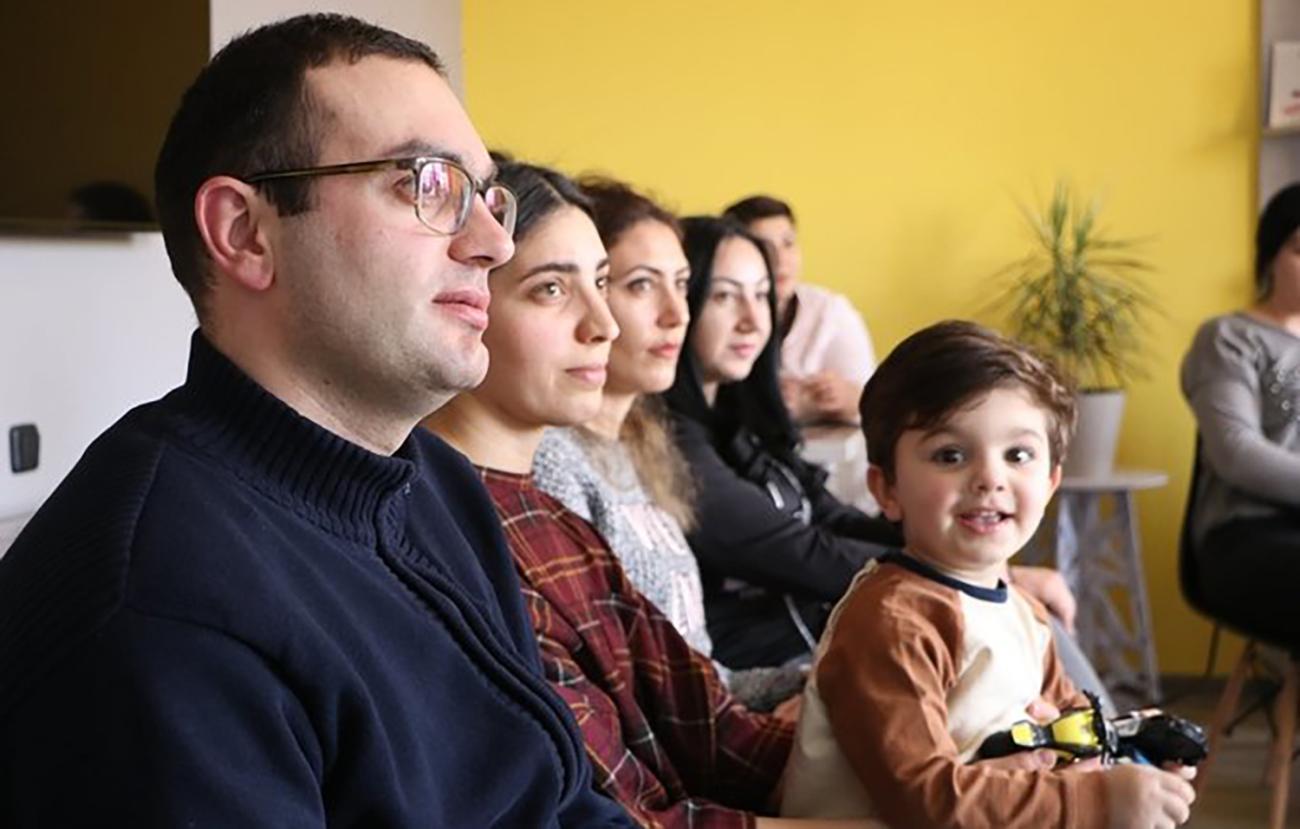
The training aimed to shift stereotypes around men’s and women’s roles and promote men’s engagement in caretaking and household chores.
The atmosphere at the moment when we entered was lively: a group of young men and women sat in a circle in a bright, modernly-furnished room, discussing something animatedly. In the middle of the circle, two toddlers were playing, not paying attention to the adults. It’s a “Caring for Equality” training, taking place in the Gyumri Family Corner. The training aims to shift stereotypes around men’s and women’s roles and promote men’s engagement in caretaking and household chores.
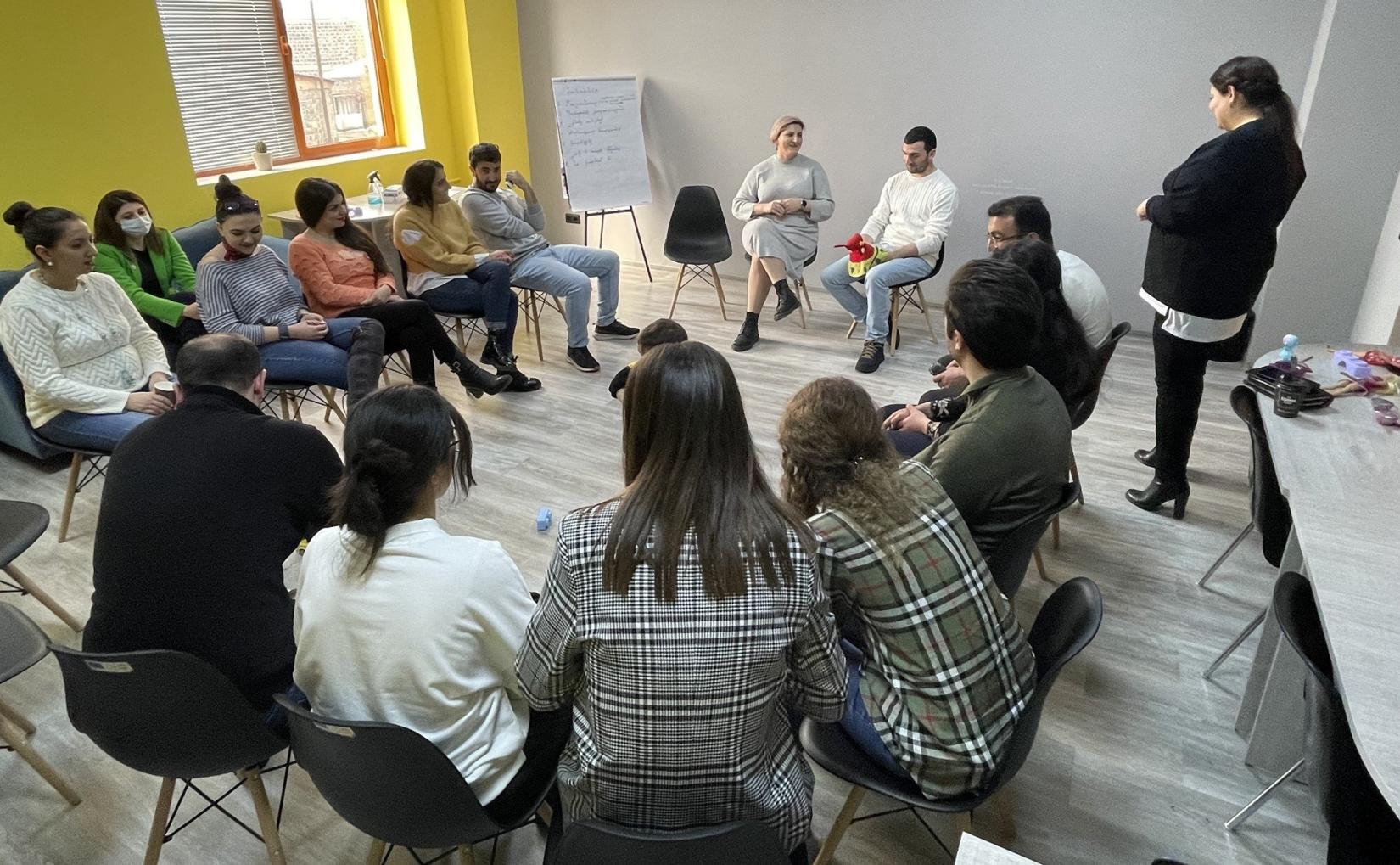
In a short while, the discussion topic of the day became clear: Gender and toys. Participants learn how certain toys can reinforce harmful gender norms with children, and reflect on the importance of play as another important form of caregiving.
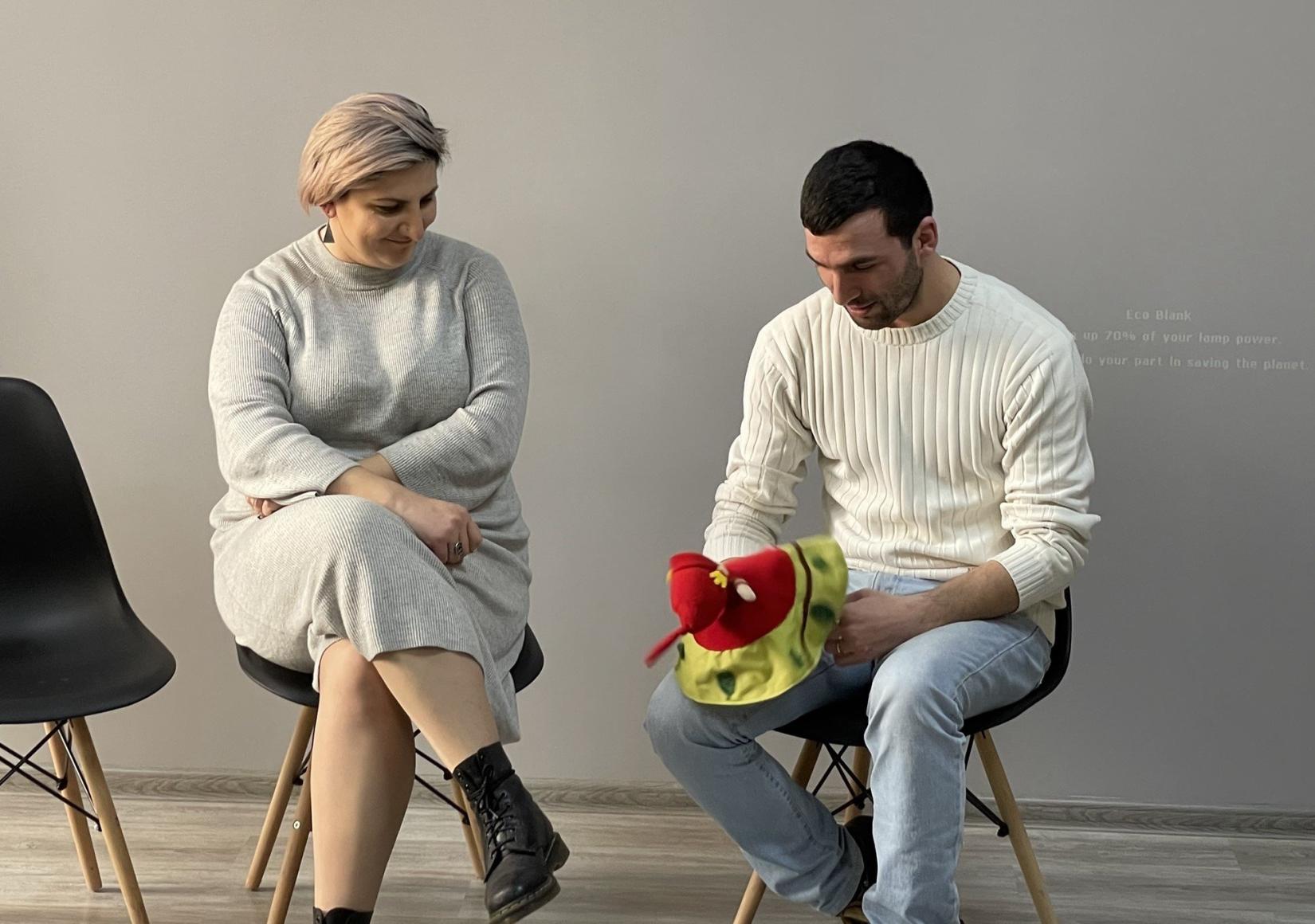
While kids continued playing placidly, the adults’ discussion became even more active. The facilitators asked the participants to join in random pairs as a “parent” and a “child”. Then the “parent” picked up a toy from one of the tables. Next, all the “parents” explained their choice and described how they would use the toy as a means of child development. The facilitators led the discussion through questions, the participants expressed their opinions freely.
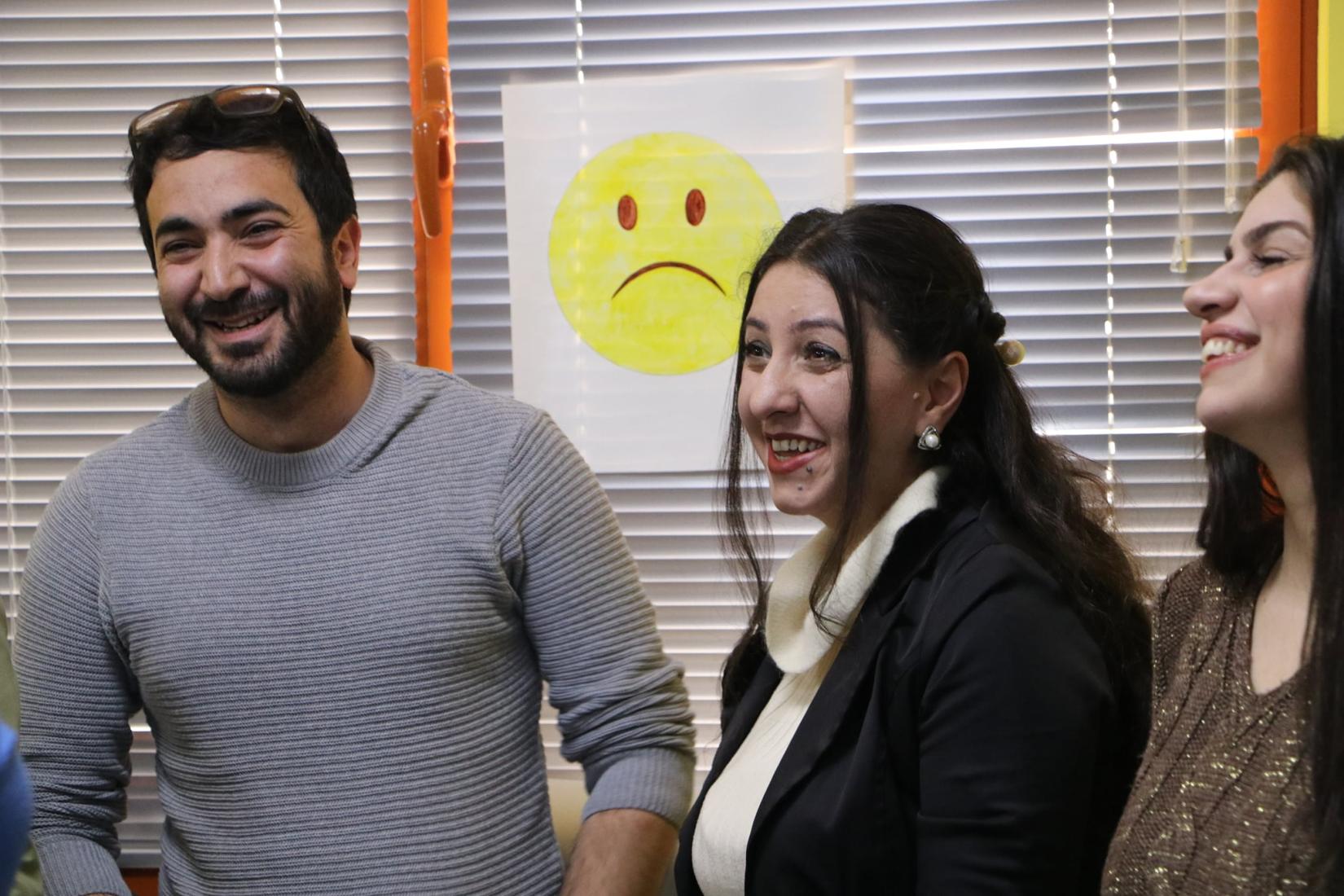
This was one of the nine topics around which the meetings of “Caring for Equality” training were being woven. Through interactive games and debates, current and future parents discuss establishing harmonious relationships in families, distributing roles among spouses, bringing up children, and preventing domestic violence.
The topics are based on the local reality. In Armenia, according to recent research, fathers have become more engaged in caretaking and education of children. But women perform the vast majority of tasks related to childcare, and a significant percentage of men acknowledge that their own role is secondary.
The 18 young people who participated in the training in the Gyumri Family Corner in February-April this year not only have varying backgrounds but also different perceptions of family relations. We asked the facilitators, social workers from World Vision Armenia, how difficult it was working with the group. “In the very beginning when I knew nobody from the group, I was thinking it would be very hard, especially the phase of integration – when we become an integrated group, we would be more open and would share our thoughts,” Gohar Petrosyan, one of the facilitators says.
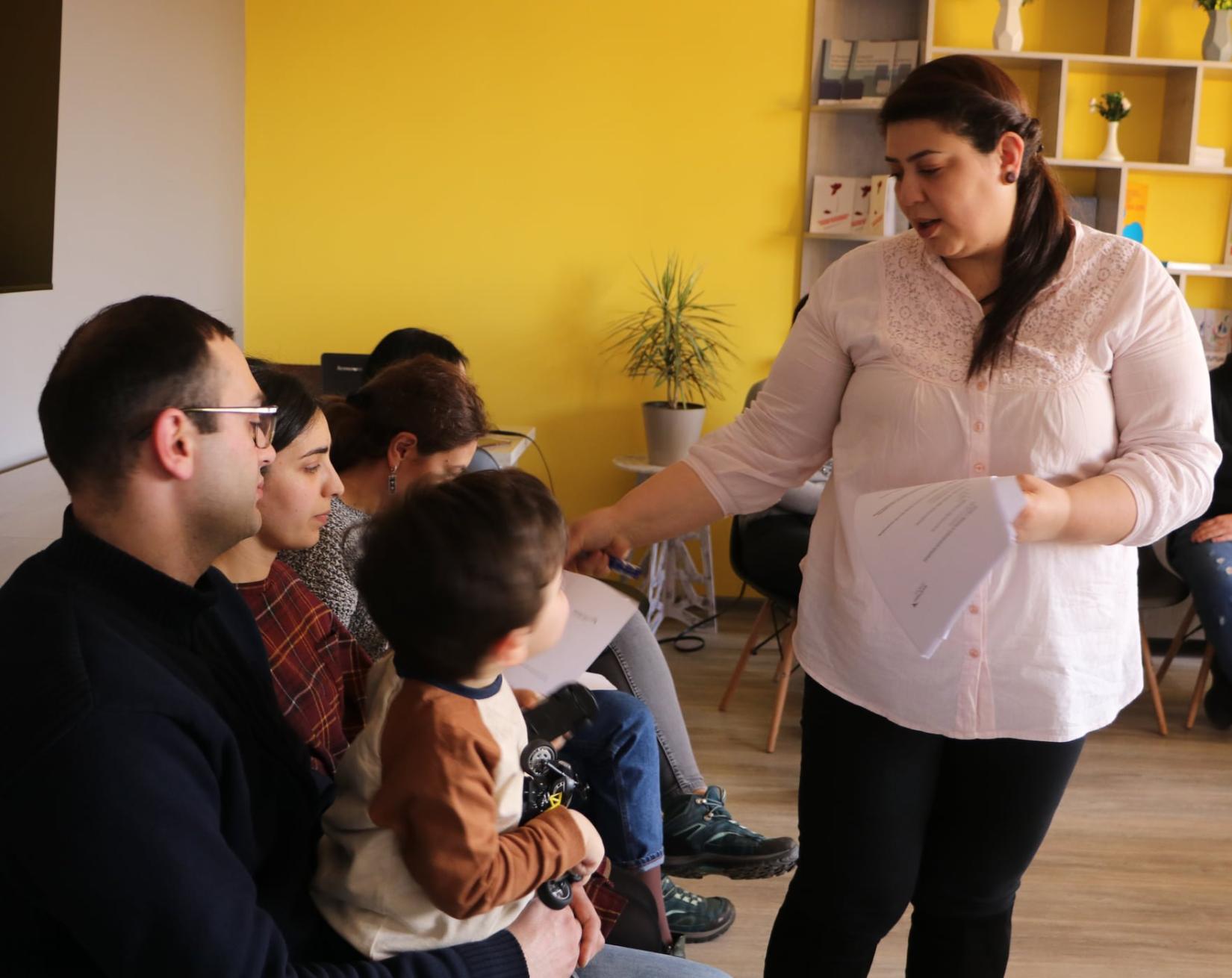
The concerns, however, dissipated very soon – the group became an integrated team and openness in the group increased day by day. “There was trust, and it was in that atmosphere of trust that they began to talk and to talk sincerely, to tell secrets that they otherwise wouldn’t tell anybody,” Gohar says.
Is there progress as a result of the training? We asked the facilitators. Is there any success in shifting the stereotypes existing among the participants? How do the fathers respond to messages on the importance of being more engaged in childcare? According to Gohar Petrosyan, the most important progress is the process of spouses rediscovering each other: “Especially in case of married couples, you feel clearly that they rediscover each other during our sessions. That is the biggest guarantee of success to me – when they go from here being rediscovered by each other, even if slightly. Or when they go reflecting on an issue – that is progress and an achievement to me,” Gohar says.
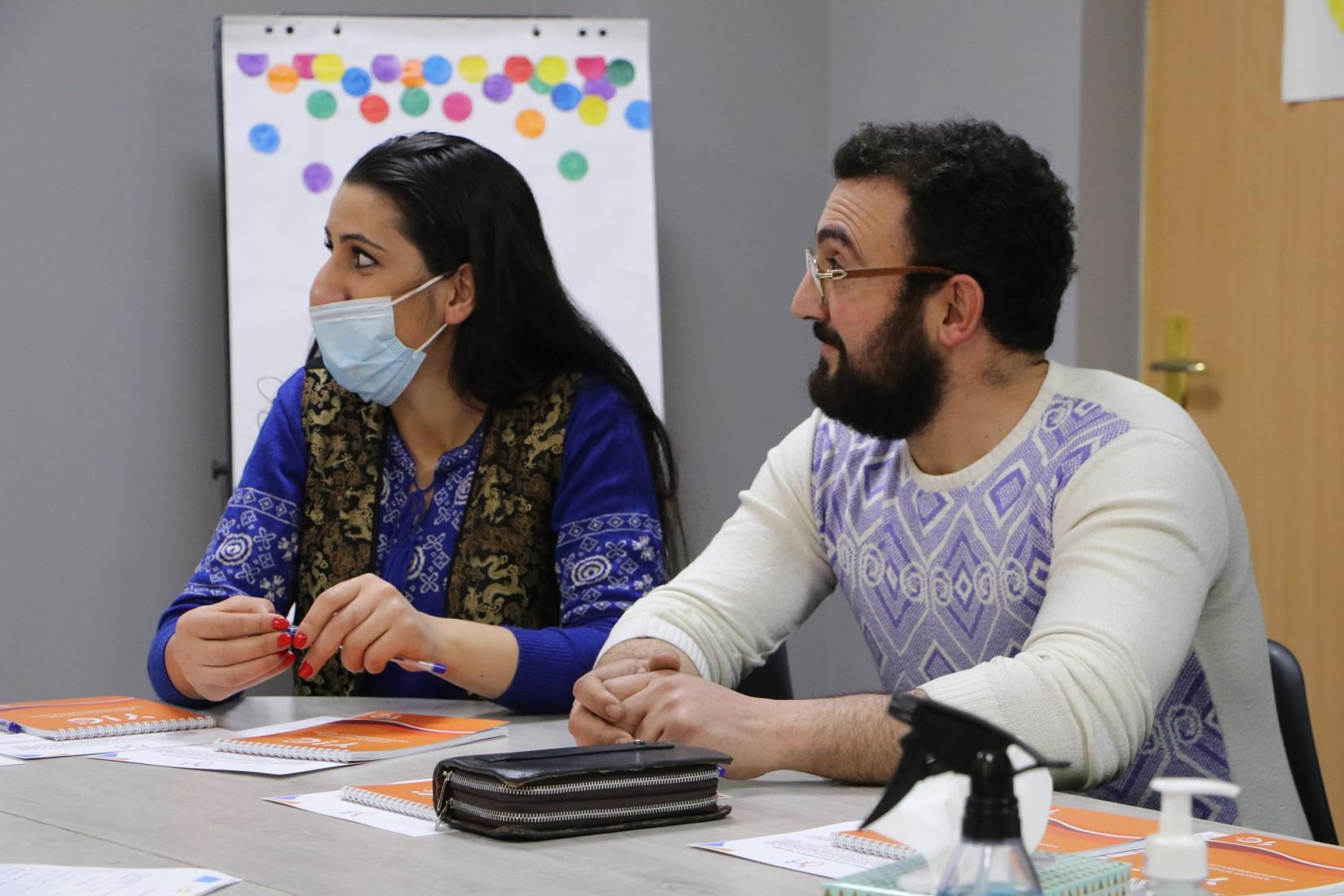
The time for the session has expired, but the participants do not hurry to leave. What were their expectations when applying to participate in the project? Were they justified? This is what we asked the participants. “In the very beginning when I learnt we would participate, I thought it would be just friendly entertainment. But now I can state clearly that I have revised many things in myself and especially in our relationships, in our family, in methods of child-rearing,” says 27-year-old Ani Darchoyan, adding that “each and every word heard” during the training will be applied by her in her future family life.
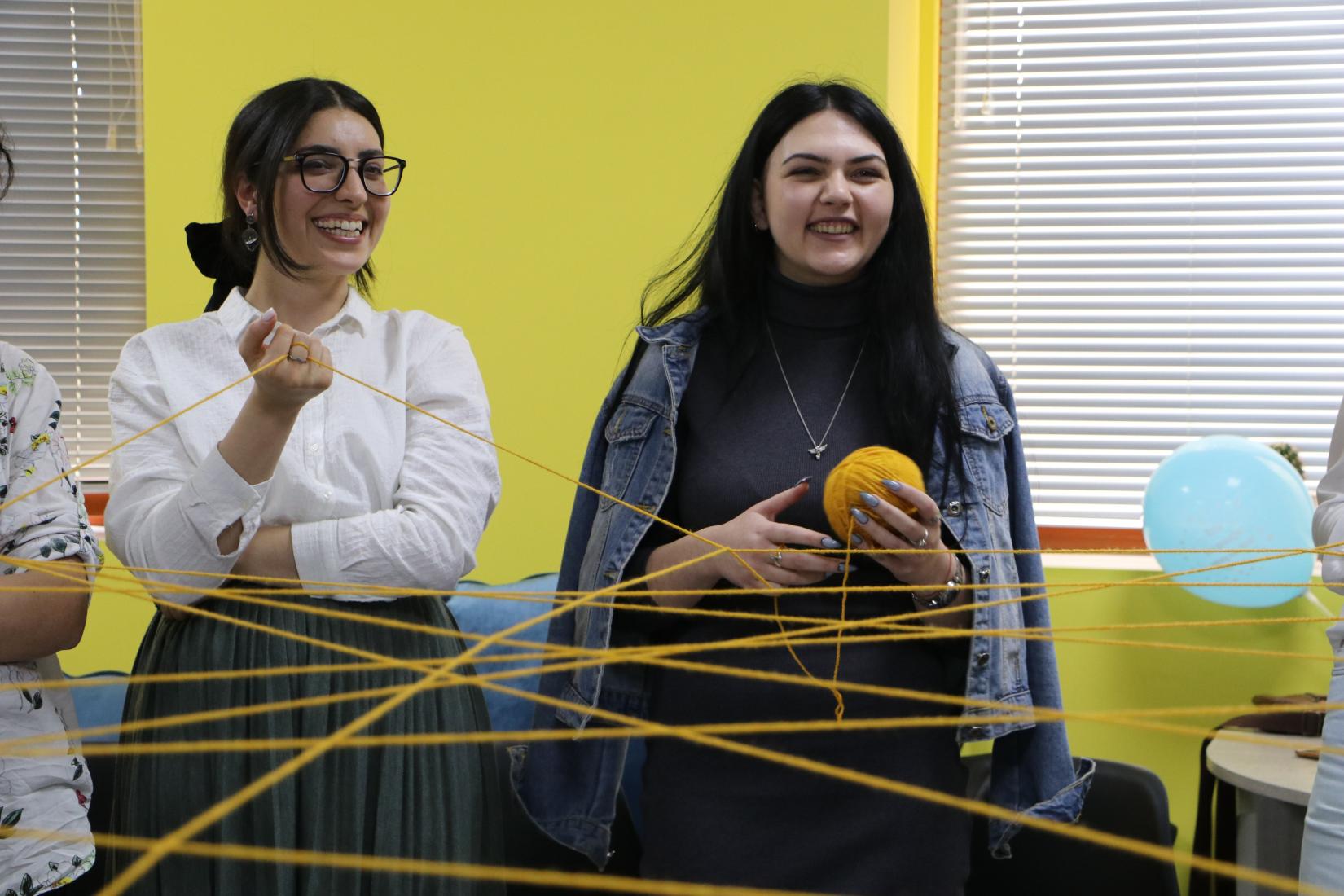
“The life experience of someone else is shared with you, you analyze,” says Gevorg, Ani’s husband. He is confident that the training has affected their relationships positively: “Each Saturday, when we return back home from the session, first we recall everything, analyze, then share our thoughts with each other.”
“I would like very much for the training to continue, as these are not just any written laws; all these stories stem from life – these are real cases, real stories that you might have disregarded previously but after these discussions you stop and say “Oh!”,” Ani says.
Astghik Hovhannisyan, the coordinator of the Gyumri Family Corner, has participated in all sessions and earned the trust of the beneficiaries. She is confident that the spouses have become closer as a result of the training. “And the young people who were about to marry began to have a better idea on the problems they might face. And why not – they got inspired learning the stories of the married participants,” Astghik says.
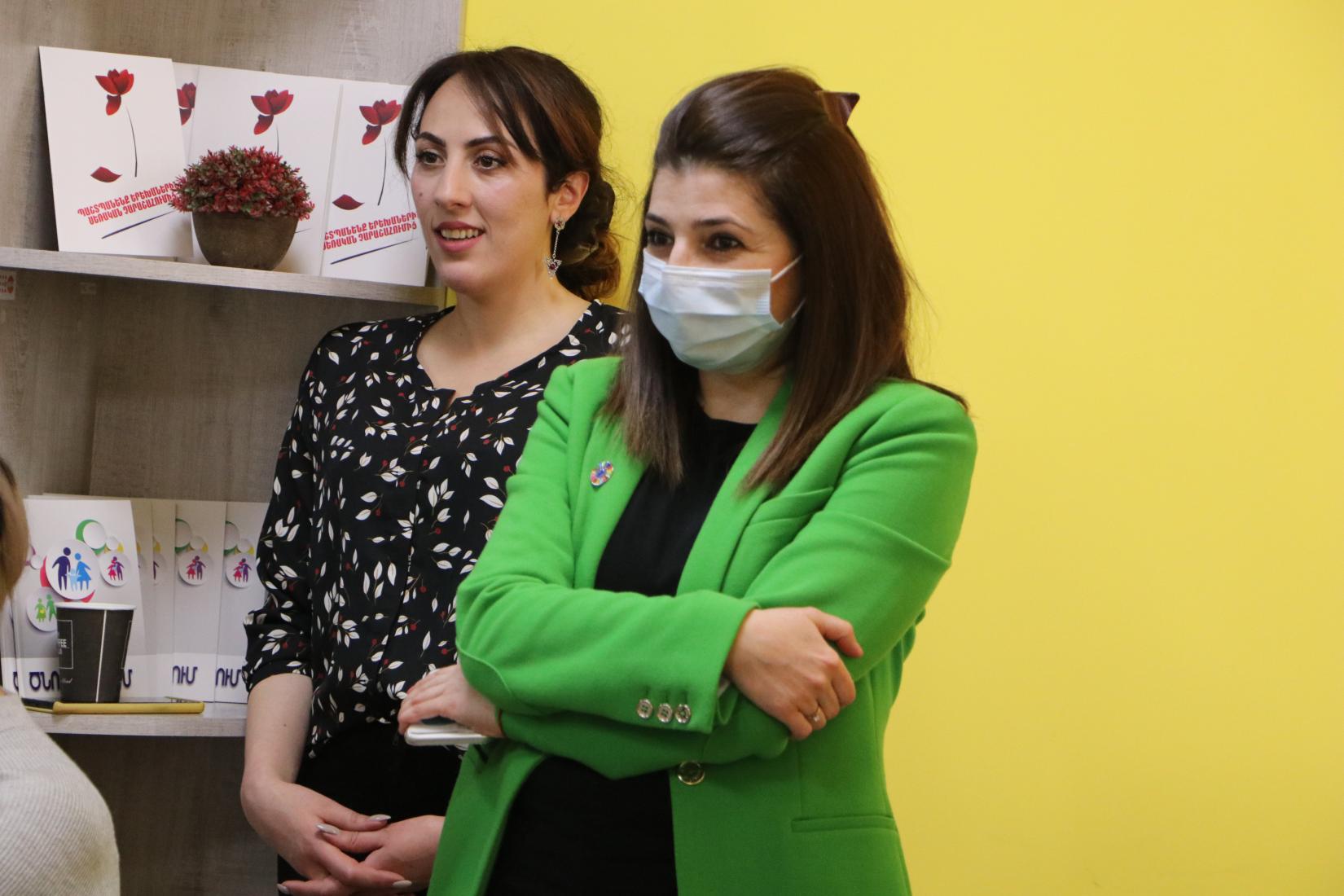
The Gyumri training is over but the group is not willing to be separated. They have found an alternative to the Saturday sessions – travelling together. Astghik tells that they have planned the first trip – to Marmashen, a village near Gyumri where an ancient monastery is located. Astghik is invited to take part in the trip as well.
“This is one of the most important goals of the Family Corners – to establish a network of young men and women, fathers and mothers, who exchange experiences, do peer education, develop together. The first try was successful,” Narine Beglaryan, “EU 4 Gender Equality: Together against Gender Stereotypes and Gender-based Violence” project manager in Armenia, says.
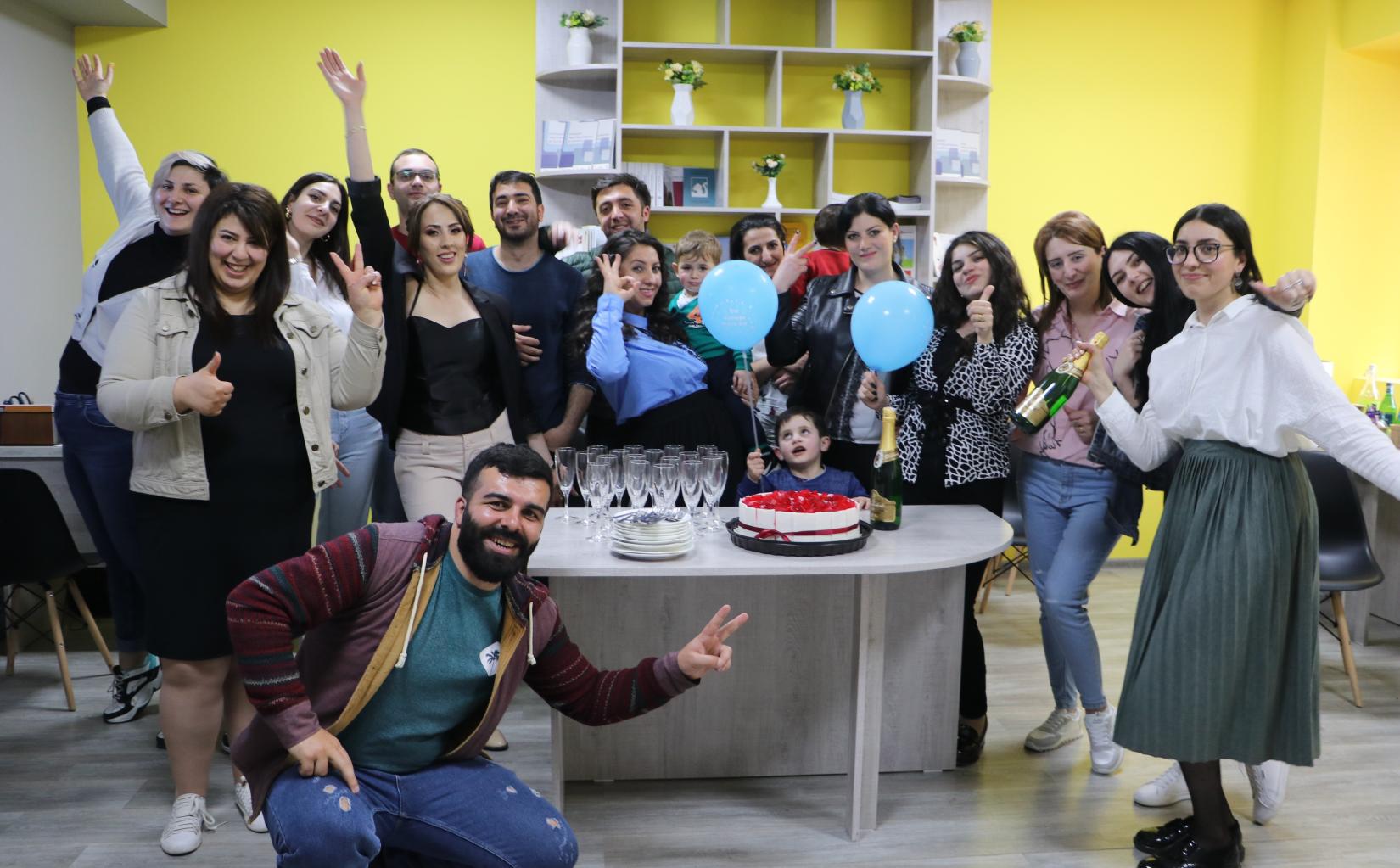
“I am very pleased to see that EU-funding is being directed towards more modern parenting skills and support networks. These interventions have been very useful in Europe and helped many new and more established parents and couples as an eye-opener on how to create better daily family and child care routines. I am sure this will also be the case in Armenia,” EU Ambassador to Armenia Andrea Wiktorin says.
***
The “Caring for Equality” trainings are organized in Armenia as part of the “EU 4 Gender Equality: Together against Gender Stereotypes and Gender-based Violence” programme funded by the European Union and implemented jointly by UNFPA and UN Women. In the near future, Family Corners will be established and trainings will be conducted in Lori and Tavush regions of Armenia. The Family Corner resource centers are being established in cooperation with Gyumri Youth Initiatives Centre.

Written by
